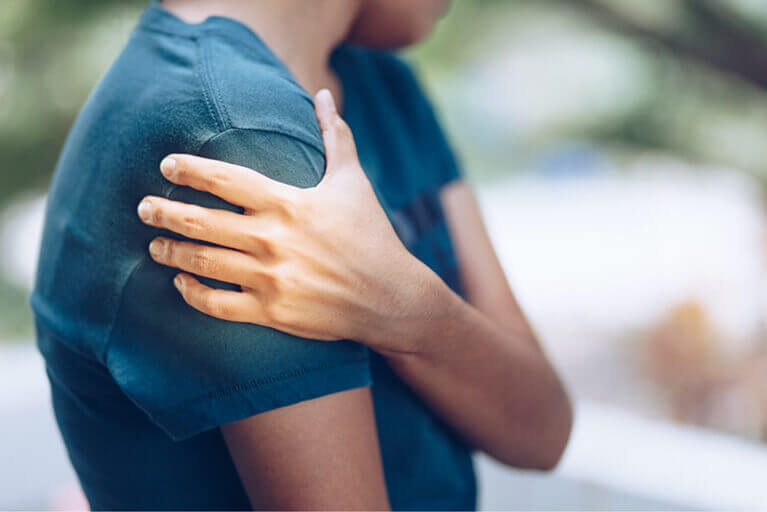Shoulder


The shoulder is one of the largest and most complex joints within the human body. Ensuring the muscles are strong and the joint is flexible are both imperative to maintaining healthy, functional shoulders.
Our therapists use a combination of strengthening, manual therapy, stretching, and other techniques to help patients recover from shoulder-related injuries or pain.
The shoulder is one of the largest and most mobile joints in the human body—and also one of the most complex. Because it relies on a delicate balance of muscles, tendons, ligaments, and bones to function properly, it’s also highly susceptible to injury. At Reform Physical Therapy, we offer personalized treatment plans to restore shoulder strength, improve mobility, and reduce pain—so you can get back to your daily life without limitations.
Why Shoulder Pain Happens
Shoulder pain can result from many causes, including overuse, poor posture, athletic strain, or even simple daily movements. Rotator cuff injuries, impingement, frozen shoulder, and instability are all common conditions we see in our clinics.
Left untreated, shoulder issues can worsen over time—leading to limited range of motion, chronic pain, or even difficulty sleeping.
Signs You May Need Shoulder Physical Therapy
You may benefit from seeing a physical therapist if:
- Your shoulder feels unstable, like it might “slip” or pop out
- You have trouble rotating your arm in all directions
- You feel stiffness, achiness, or tightness in your shoulder
- Lifting, reaching, or daily movements cause pain or weakness
- You’ve had shoulder surgery and need help regaining mobility
The sooner you begin treatment, the better your chances are for a full recovery and long-term joint health.
Our Approach to Shoulder Recovery
At Reform PT, your care plan is based on your specific injury, lifestyle, and goals. Depending on your needs, your shoulder therapy may include:
- Targeted strengthening exercises
- Manual therapy and soft tissue work
- Postural training and correction
- Joint mobilization and stretching
- Education on movement and injury prevention
Our goal is not just to relieve pain, but to improve shoulder mechanics and help prevent future injury.
Start Moving Comfortably Again
If you’re dealing with shoulder pain, don’t wait until it gets worse. Contact us today to schedule an evaluation and find out how shoulder physical therapy at Reform PT can help you move better and feel stronger. is identified the better, as shoulder pain can be difficult to resolve if left untreated for an extended period of time.
Common Shoulder Conditions & Injuries:
Physical therapy for shoulder pain, injuries, or replacement typically consists of the following goals:
- Strengthen shoulder muscles and surrounding musculature
- Scapular strengthening, as the shoulder blade (scapula) acts as the foundation for shoulder stability
- Restore the mechanics of the shoulder
- Reduce pain and restore range of motion
- Core & back strengthening
- Posture training
